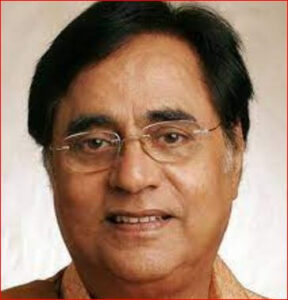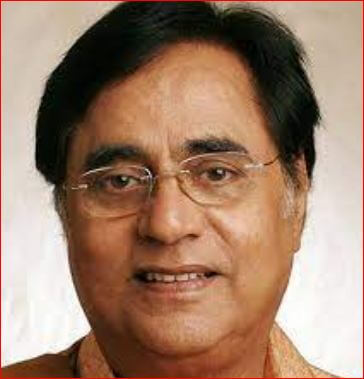The master of Indian ghazal music, Jagjit Singh, is still regarded as a legendary figure whose beautiful voice and moving performances have touched the hearts of millions of people all over the world. A profound immersion in music characterized his early years, as he was raised in a Sikh household and his father was a devoted student of classical music.
In the busy streets of Bombay (now Mumbai), Singh’s musical journey started as a modest fantasy. He persevered in the face of hardships and rejections at first, eventually making a name for himself as a trailblazing artist who transformed the ghazal genre. His work with lyricist-wife Chitra Singh added to his reputation as a musician by fusing traditional and modern elements in a way that delighted listeners of all ages.
Jagjit Singh captivated audiences with his unmatched ability to elicit real emotions, transcending cultural borders with his soul-stirring tunes and profound lyrics. His illustrious career, which spanned more than 50 years, produced a large number of albums, film soundtracks, and live performances that are still beloved by music lovers around.
Beyond his skill as a musician, Singh’s life was characterized by personal tragedies, such as the premature death of his son Vivek, which had a tremendous impact on his later compositions by bringing a deep feeling of melancholy and reflection to them. As we explore the life story of JagjitSing h, we discover not just the tale of a great musician but also the story of a soul that found transcendence and comfort in the ageless melodies of ghazals.
Don’t Miss:
- Influential and Dynamic Singers Kishore Kumar Biography
- Exploring the Soulful Melodies The Biography of Syed Abdul Hadi
Early Life Of Jagjit Singh
Jagjit Singh was born on 8 February 1941. He is recognized for reviving and popularizing the ghazal, an Indian classical art form. He composed and sang in a variety of languages. His father, Sardar Amar Singh Dhiman, was from the Punjabi village of Dalla and worked as a surveyor. Singh received his early education at Sri Ganganagar’s Khalsa High School and Government College before graduating with an arts degree from DAV College in Jalandhar.
He started working professionally there in 1961, taking up singing and composition duties at the Jalandhar station of All India Radio (AIR). He later attended Kurukshetra University in Haryana to pursue post-graduate studies in history. During this period, Singh received instruction in music from Pandit Chagan Lal Sharma, a visually impaired master of Indian classical music, and later from Ustad Jamal Khan of the Maihar gharana.
Singh was trained in all of the major Hindustani classical vocal traditions, including Khayal, Dhrupad, Thumri, and others. He wrote music and gave stage performances throughout his adolescence. Singh resolutely followed his love of music even though his government-employed father had hoped that he would become an engineer.
His father, like all middle-class Indian parents, wanted him to grow up to be a bureaucrat. But he also supported Singh’s and his siblings’ musical education. Singh came to Bombay in March 1965, without telling his family, where the Hindi film industry offered plenty of chances for musicians. He started off singing commercial jingles to get employment, then moved on to playback singing.

Profile Of Jagjit Singh
- Full Name: Jagjit Singh
- Nick Name: Ghazal King
- Date of Birth: Jagmohan Singh Dhiman,8 February 1941
- Birth Place: Sri Ganganagar, Bikaner State, British India
- Spouse: Chitra Singh
- Children: 2
- Genres: Ghazal, classical, devotional, folk, Bhajan
- Occupation(s): Music director, composer, singer
- Instrument(s): Vocals, harmonium, tanpura, piano, tabla
- Labels: EMI, HMV, Saregama, Universal, Sony BMG, CBS, Polydor, TIPS, Venus, T-Series, Magna Sound, Big, Times
- Years active:1960–2011
- Died: 10 October 2011 (aged 70), Mumbai, Maharashtra, India
Jagjit Singh’s Career
His compositional and gayaki approach is regarded as Bol-pradhan in Indian classical music, meaning it emphasizes words. His soundtracks for the TV series Mirza Ghalib (1988) and Kahkashan (1991) as well as the movies Prem Geet (1981), Arth (1982), and Saath Saath (1982) emphasized this. In terms of both critical and financial success, Singh is regarded as the greatest ghazal performer and composer of all time.
His work has been considered genre-defining due to its wide range and scope, spanning five decades and numerous albums. The first digitally recorded album released in India was Singh’s Beyond Time, released in 1987. He was considered one of the most important artists in India. Along with prominent members of Indian classical music and literature such as sitarist Ravi Shankar, Singh expressed his worries about the politicization of art and culture in India as well as the lack of support that Indian traditional artists and musicians—particularly folk musicians and artists—are facing.
He actively supported many charitable initiatives, including CRY, Save the Children, Bombay Hospital, the library at St. Mary’s School in Mumbai, and ALMA. The Indian government granted Singh the Padma Bhushan in 2003, and two postal stamps were issued in his honor in February 2014.
Albums
| Release Year | Album Name | Songs |
| 2000 | Saher |
|
| 1998 | silsilay |
|
| 1 February 1996 | Mirage |
|
| 1 December 1990 | Someone Somewhere |
|
| 1982 | The Latest |
|
Some works
- Abdus Salam: A Biography (1992)
- Modern Cosmology (1970)
- Great Ideas in Information Theory, Language and Cybernetics (1966)
- Great Ideas and Theories of Modern Cosmology (1961)
- Mathematical Ideas: Their Nature and Use (1959)
- Great Ideas of Modern Mathematics
- Reminiscences of a Mathematician Manqué
- Great Ideas of Operations Research
- The making of a good science writer
Awards
- Lata Mangeshkar Samman in 1998 by Madhya Pradesh government.
- Sahitya Kala Academy Award by Rajasthan government in 1998
- Dayawati Modi Award in 1999.
- D.Litt. by Kurukshetra University, Haryana in 2003
- Teacher’s Lifetime Achievement Award in 2006.8th Teacher’s Achievement Awards.
- Google honoured Jagjit Singh with a doodle on his 72nd birthday on 8 February 2013.
- In 2012, the State Government of Rajasthan posthumously awarded Jagjit Singh its highest civilian award, the Rajasthan Ratna.
- Ghalib Academy by Delhi Government in 2005
Jagjit Singh’s Personal Life & Death
The 20-year-old son of Jagjit Singh and Chitra, Vivek Singh, passed away in a car accident in 1990. To Jagjit and Chitra Singh, this was a huge shock. Following the death, they stopped performing music for a whole year. After that time, Chitra announced her retirement and said she would not be singing or recording any more songs, while Jagjit gradually returned to the music industry.
Singh had undergone two heart bypass procedures in 1998 and 2007 and had battled several illnesses throughout his later years, including diabetes and hypertension. He had been a chain smoker for many years, but he had given up after his first heart attack. In February 2011, Singh became 70 years old.
He committed to 70 concerts across the globe in honor of his 70th birthday. Jagjit Singh performed with Ghulam Ali in Mumbai on September 23, 2011, after touring the UK, Singapore, and Mauritius, among other places, but on September 23, 2011, he suffered a cerebral hemorrhage. He passed away at Mumbai’s Lilavati Hospital on October 10 after being in a coma for more than two weeks.
Upshot
The life story of Jagjit Singh is a motivational example of the strength of music and tenacity. His soul-stirring compositions and seductive vocals made a lasting impression on the Indian music scene. Singh, who came from modest beginnings, overcame many obstacles in his quest for fame, but he never wavered in his dedication to his love of music.
His skill at fusing conventional ghazals with contemporary musical sensibilities transformed the genre, opening it up to a larger audience while maintaining its ageless beauty. Triumphs and tragedies abound throughout Singh’s journey; among them is the sudden death of his son, which had a profound effect on him.
He nevertheless found comfort in his music, which allowed him to express his feelings via his creativity and win over millions of fans worldwide. Singh gained respect and appreciation throughout his career due to his humility and generosity, which went beyond his musical ability and won him the affection of both fans and colleagues.
FAQs
1. Which are some of the most well-known songs by Jagjit Singh?
A: A few of Jagjit Singh’s most well-known songs are “Koi Fariyaad,” “Hoshwalon Ko Khabar Kya,” “Tum Itna Jo Muskura Rahe Ho,” “Yeh Tera Ghar Yeh Mera Ghar” among many more.
2. What impact did Jagjit Singh have on Indian music?
A: An important factor in the spread of Ghazal music in India was Jagjit. His poignant interpretations and contemporary take on Ghazals opened up the genre to a larger audience in India and elsewhere.
